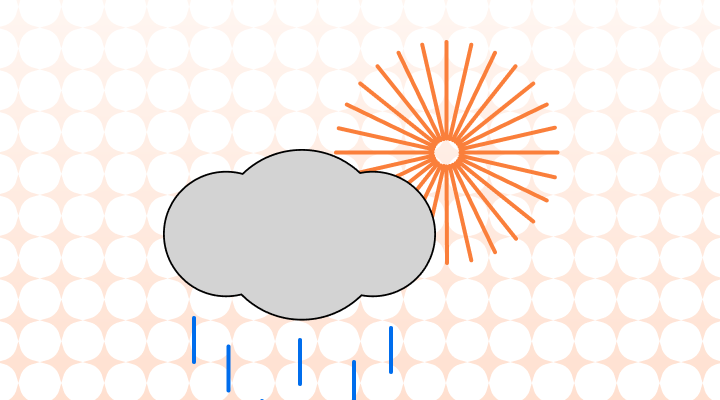'일기예보'를 영어로 "Weather Forecast"로 표현할 수 있습니다.
"I always check the weather forecast before planning any outdoor activities."
나는 언제나 야외 활동을 계획하기 전에 일기예보를 확인한다.
"According to the weather forecast, we can expect clear skies and mild temperatures tomorrow."
일기예보에 따르면 내일은 맑은 하늘과 온화한 기온을 기대할 수 있다.
"The weather forecast calls for heavy snowfall in the mountainous areas over the weekend."
일기예보에 따르면 주말에 산간 지역에 눈이 많이 올 것으로 예상된다.
"The weather forecast was accurate, and we experienced strong winds as predicted."
일기예보가 정확했고, 우리는 예상대로 강한 바람을 경험했다.
"Make sure to stay updated on the weather forecast to plan your travel accordingly."
여행 계획을 그에 맞게 세우기 위해 일기예보를 최신 정보로 유지하세요.
"The local meteorologist provides a daily weather forecast on the news channel."
현지 기상전문가는 뉴스 채널에서 매일 일기예보를 제공한다.
"They issued a severe weather warning based on the latest weather forecast."
최신 일기예보에 기반하여 심각한 날씨 경보를 발령했다.
"The weather forecast suggests a gradual warming trend over the next few days."
일기예보에 따르면 다음 몇 일 동안 점진적인 온난화 추세가 있을 것으로 보인다.
"We decided to reschedule the outdoor event due to the unfavorable weather forecast."
불리한 일기예보로 인해 우리는 야외 행사 일정을 변경하기로 결정했다.
"It's a good idea to have an umbrella with you, just in case the weather forecast is off."
일기예보가 틀렸을 경우를 대비하여 우산을 가지고 있는 것이 좋은 생각이다.
'일기예보'와 관련된 실생활 표현
- Check the Weather Forecast. (일기예보를 확인하세요.)
- What's the Weather Like Today? (오늘 날씨 어때요?)
- Is it Going to Rain Tomorrow? (내일 비 올 거에요?)
- I Heard There's a Cold Front Coming. (찬 공기 전선이 온다던데요.)
- They're Calling for Snow Later. (나중에 눈이 올 거라고 하네요.)
- The Forecast Says It'll Be Sunny. (일기예보에는 맑을 거라고 나와요.)
- I Checked the Weather Report Online. (인터넷으로 일기예보를 확인했어요.)
- Bring an Umbrella, Just in Case. (혹시나해서 우산 가져가세요.)
- The Weatherman Predicted Thunderstorms. (기상캐스터가 천둥번개가 올 거라고 했어요.)
- We Might Have a Heatwave This Weekend. (이번 주말에 폭염이 올지도 몰라요.)
'일기예보'를 영어로 쓸 때 어떤 단어가 적절한 지 헷갈린다면 AI 영어 문법 검사기 엔그램을 사용해보세요. AI가 문법 오류와 어색한 표현을 자연스럽게 고쳐줍니다.
영어 문법 검사기 / 영어 맞춤법 검사기 (무료) - 엔그램
엔그램의 무료 영어 문법 검사기와 영어 맞춤법 검사기를 이용하여 2% 부족한 번역기 결과를 첨삭받아보세요. 문법 및 맞춤법 오류와 어색한 영어 표현을 AI가 자연스럽게 고쳐드립니다.













